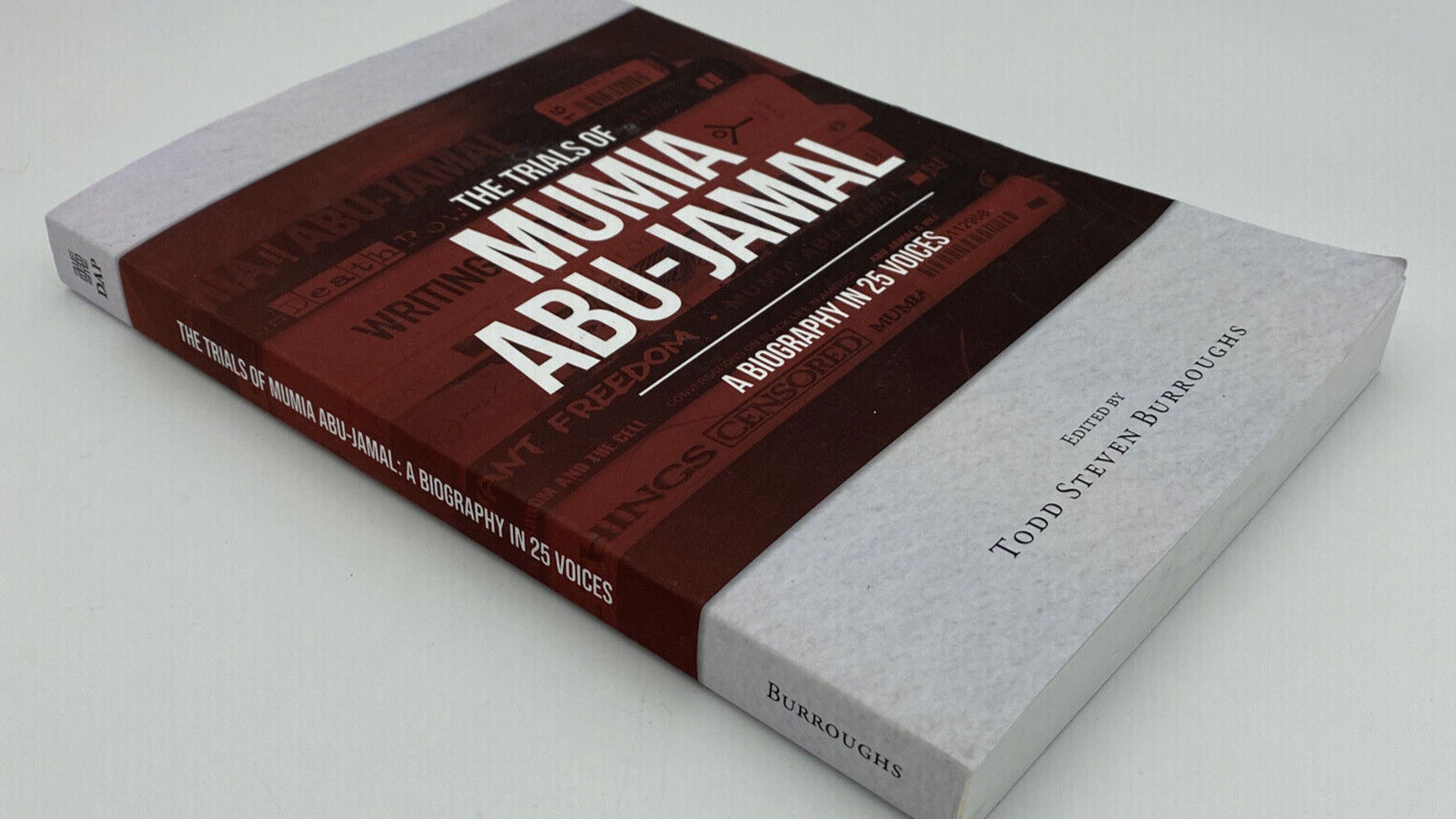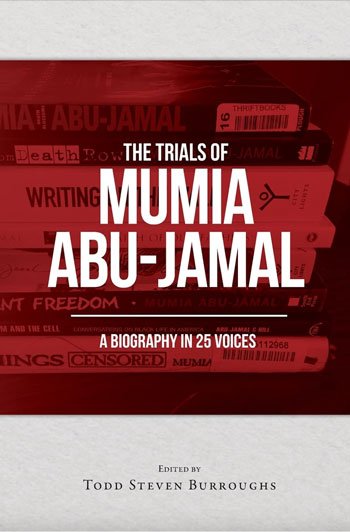The activist community—Black and white, local and global—is well aware of the torment and travails of Mumia Abu-Jamal. A political prisoner for more than 40 years, Abu-Jamal has been enshrined in the social media platform, and “The Trials of Mumia Abu-Jamal—A Biography in 25 Voices,” edited by Todd Steven Burroughs, should give his continuing plight added resonance.
Burroughs is among a coterie of writers and scholars who have been relentless in their resolve to free the iconic figure, and he has summoned many of them to carry on this mission.
“Here is a ‘collective biography,’” Burroughs notes in the book’s introduction. It includes such prominent activists and journalists as Pam Africa, Linn Hamilton, Jr., Johanna Fernandez, Noelle Hanrahan, and the indefatigable Angela Davis. The book is divided between a “Now” and “Then,” illuminating the evolution of Abu-Jamal’s odyssey, and visually complemented with flyers, posters, photographs, and a veritable scrapbook of government documents and memorabilia.
In the foreword, Zayid Muhammad thoughtfully lays out what the reader can expect. “This is for those whose eyes have not yet seen what we’ve seen,” he says. “This is for those whose eyes have not seen what the rest of the world has seen. This is for those who still can’t believe that the government and the state of Pennsylvania can actually be actively trying to eliminate a courageous dissident and a dissident journalist.”
Muhammad clearly foreshadows some of the commentary that flows seamlessly as the contributors chronicle the various aspects that have made Abu-Jamal emblematic of the injustice endured by the oppressed and imprisoned, and at the same time, a fearless advocate on their behalf.
One of the most alarming recent accounts is from Fernandez, who teaches history at Baruch College, CUNY. In a phone conversation with Bob Boyle, Abu-Jamal’s health attorney, who with another lawyer won a lawsuit that got Abu-Jamal treatment for hepatitis C, she learned that Abu-Jamal had contracted Covid-19. Along with this condition, she says in her article, “He’s got liver damage that was imposed by the Pennsylvania Department of Corrections because it failed to treat his Hepatitis C in a timely fashion.
“Mumia has high blood pressure, and, like so many other prisoners, he has been sedentary in a prison, 23 hours a day, for a year.”
Africa, who has been exemplary in her fight for Abu-Jamal’s freedom, underscored Fernandez’s comments during a Zoom presentation. “I can’t express it enough,” she said. “Mumia is very ill in that prison. He’s not like he was two years ago…We need to immediately put pressure and demand that [Philly DA Larry] Krasner release Mumia based on judicial and prosecutorial evidence—a move you don’t have to come back to court [to do] because Krasner released two of the prisoners from prison.”

Todd Steven Burroughs
To some extent, and Burroughs makes this point himself, the collective biography fits nicely with the 1996 publication “In Defense of Mumia,” edited by S.E. Anderson and Tony Medina. Taken together, they are companion pieces for Abu-Jamal’s own books, articles, and radio prison broadcasts.
Even so, there is still so much more to be said about a case—an injustice that has a number of social and political ramifications, and some of these issues are sure to be thoroughly discussed in Burroughs’ forthcoming “Talking Drums and Raised Fists: Mumia Abu-Jamal, a Biography of a Voice.” Meanwhile, invest a little of your precious time in reading about a precious life.
















